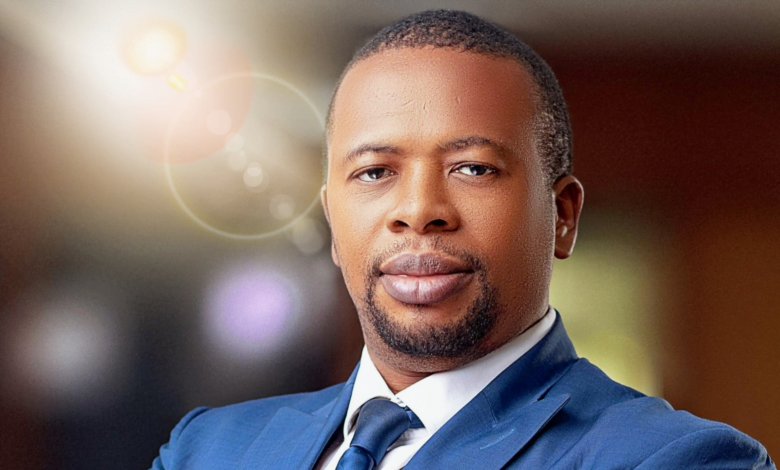The key drivers of Africa’s tech growth
Africa's tech ecosystem is flourishing, propelled by connectivity, infrastructure, financial capital, human capital, and collaboration. Understanding these pivotal factors is essential for tapping into the continent's vast potential as it positions itself as a global tech hub.

By Davidson Oturu*
Africa’s tech ecosystem is growing, driven by a blend of connectivity, infrastructure, financial capital, human capital and collaboration. As the continent positions itself as a global tech hub, understanding these key drivers is crucial for anyone looking to tap into its vast potential.
Connectivity: Bridging the Digital Divide
One of the most significant catalysts for Africa’s tech growth is the expansion of connectivity. Over the past decade, the continent has witnessed a remarkable increase in internet penetration, thanks to investments in undersea cables, broadband networks, and mobile internet infrastructure.
For instance, projects like the West Africa Cable System (WACS) and the Eastern Africa Submarine Cable System (EASSy) have drastically improved internet access across the continent. Additionally, mobile networks have expanded rapidly. According to the GSMA, mobile internet penetration in Sub-Saharan Africa was 28% in 2020 and is expected to reach 39% by 2025.
This surge in connectivity provides access and empowers millions of people with the tools to innovate, learn, and participate in the global digital economy. With more people online, there’s a growing demand for digital services, creating opportunities for tech entrepreneurs to develop solutions tailored to local needs.
From e-commerce platforms like Jumia to mobile banking apps like M-Pesa, connectivity is unlocking new markets and driving economic growth.
Infrastructure: Building the Foundations for Innovation
Robust infrastructure is the backbone of any thriving tech ecosystem. In Africa, significant strides have been made in developing the necessary infrastructure to support technological advancements. This includes everything from reliable electricity and high-speed internet to data centers and transportation networks.
For example, the development of data centers by companies like Africa Data Centres and Teraco Data Environments is providing the essential support needed for cloud computing and data storage. Improved logistics infrastructure, such as the expansion of road networks and ports, is enabling e-commerce businesses to deliver goods more quickly and reliably, enhancing customer satisfaction and driving further growth in the sector.
Investment in infrastructure is critical for fostering innovation. It provides the essential support that startups and established companies need to operate efficiently and scale their operations. For instance, Nigeria’s Lagos State has launched the ‘Lagos Smart City Project,’ aiming to integrate ICT into the city’s infrastructure to boost economic growth and improve living standards.
Capital: Fueling the Growth Engine
Access to capital is another key driver of Africa’s tech growth. Over the past few years, there has been a noticeable increase in venture capital (VC) investments across the continent. According to Partech, African startups raised a record $5.2 billion in VC funding in 2021, up from $1.43 billion in 2020.
In 2022, Africa secured $5.2 billion in venture capital through 786 deals, constituting only 3% of the total volume and 1.2% of the overall value of global venture funding for the same year (Venture Capital in Africa Report 2023).
In 2023, African venture capital investments faced a downturn, securing a total of $3.5 billion across 547 deals (Partech’s 2023 Africa Tech Venture Capital Report). This marked a 46% decrease in total funding and, notably, the first time in 8 years of reporting, a 28% decline in deal count. Nevertheless, the Partech report highlights an increase in the number of debt deals, emerging as an alternative capital source in the past year, amid a 32% drop in equity deal count.
International investors are recognizing the potential of Africa’s tech startups. Companies like Andela, Flutterwave, and Jumia have attracted significant investments from global VC firms. Local investors are also stepping up to support homegrown talent, with initiatives like the Tony Elumelu Foundation’s Entrepreneurship Programme providing funding and mentorship to African entrepreneurs.
This influx of capital is crucial for startups looking to scale their operations, hire top talent, and invest in research and development. It’s also fostering a culture of innovation, as entrepreneurs are more willing to take risks and pursue bold ideas when they have access to the necessary financial resources.
Collaboration: Harnessing Collective Strengths
Collaboration is the glue that binds Africa’s tech ecosystem together. From partnerships between tech companies and academic institutions to collaborations between startups and large corporations, the spirit of working together is fueling innovation and growth.
Tech hubs and innovation labs across the continent, such as Nairobi’s iHub and Lagos’s Co-Creation Hub (CcHub), are providing spaces where entrepreneurs can collaborate, share ideas, and access mentorship and support. These hubs are not only nurturing startups but also fostering a sense of community and shared purpose.
Furthermore, governments and policymakers are playing a crucial role in promoting collaboration by creating conducive environments for tech businesses to thrive. For instance, Nigeria’s Startup Act, which aims to create a friendly regulatory environment for startups, is a testament to the government’s commitment to supporting the tech ecosystem.
Human Capital: Leveraging Talent for Growth
Human capital is a critical driver of Africa’s tech growth. The continent is home to a young and dynamic population, with a median age of around 19. This youthful demographic is increasingly tech-savvy and eager to engage with new technologies.
Education and training programs are essential in harnessing this potential. Initiatives like Andela, which trains software developers and connects them with global companies, and the Moringa School, which offers coding bootcamps in East Africa, are excellent examples of efforts to develop local talent.
Moreover, the diaspora is playing a significant role in transferring knowledge and skills back to the continent. Many Africans who have studied or worked abroad are returning home, bringing with them valuable expertise and a global perspective.
Seizing the Opportunities
For anyone looking to seize the opportunities presented by Africa’s tech growth, networking with key players in the tech ecosystem, participating in industry events, and staying informed about the latest trends and developments are all strategies that can help you navigate and leverage Africa’s tech growth.
In conclusion, Africa’s tech growth is driven by the combination of connectivity, infrastructure, financial capital, human capital, and collaboration. By understanding and engaging with these key drivers, you can position yourself to capitalize on the vast opportunities that the continent’s burgeoning tech ecosystem has to offer.
Whether you’re an entrepreneur, investor, or tech enthusiast, now is the time to get involved and contribute to Africa’s exciting tech future.
The future of technology is Africa.
References
- West Africa Cable System (WACS) – https://www.wacscable.com/
- Eastern Africa Submarine Cable System (EASSy) – https://www.eassy.org/
- GSMA Mobile Economy Report – https://www.gsma.com/mobileeconomy/sub-saharan-africa/
- Africa Data Centres – https://www.africadatacentres.com/
- Teraco Data Environments – https://www.teraco.co.za/
- Lagos Smart City Project – https://lagosstate.gov.ng/blog/2020/02/25/lagos-launches-smart-city-project/
- Partech Africa Report – https://partechpartners.com/research/africa/
- Andela – https://andela.com/
- Flutterwave – https://www.flutterwave.com/
- Jumia – https://group.jumia.com/
- Tony Elumelu Foundation – https://www.tonyelumelufoundation.org/
- iHub Nairobi – https://ihub.co.ke/
- Co-Creation Hub (CcHub) – https://cchubnigeria.com/
- Rwanda Vision 2020 – https://gov.rw/government/programmes/vision-2020
- Nigeria Startup Bill – https://startupbill.ng/
*Davidson Oturu is VC at Nubia Capital| Venture Capital| FinTech| Attorney| Non Executive Director| Investor






